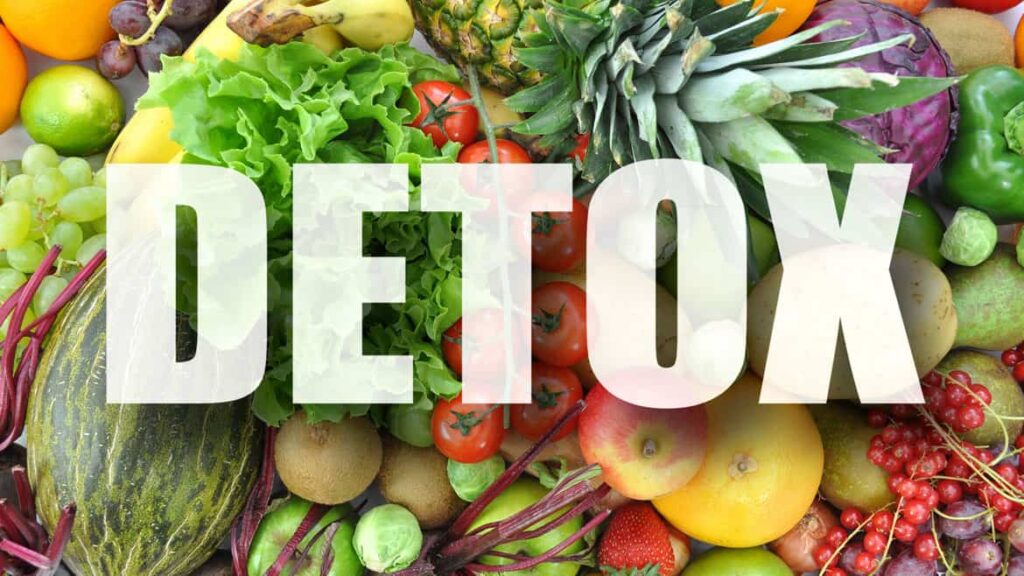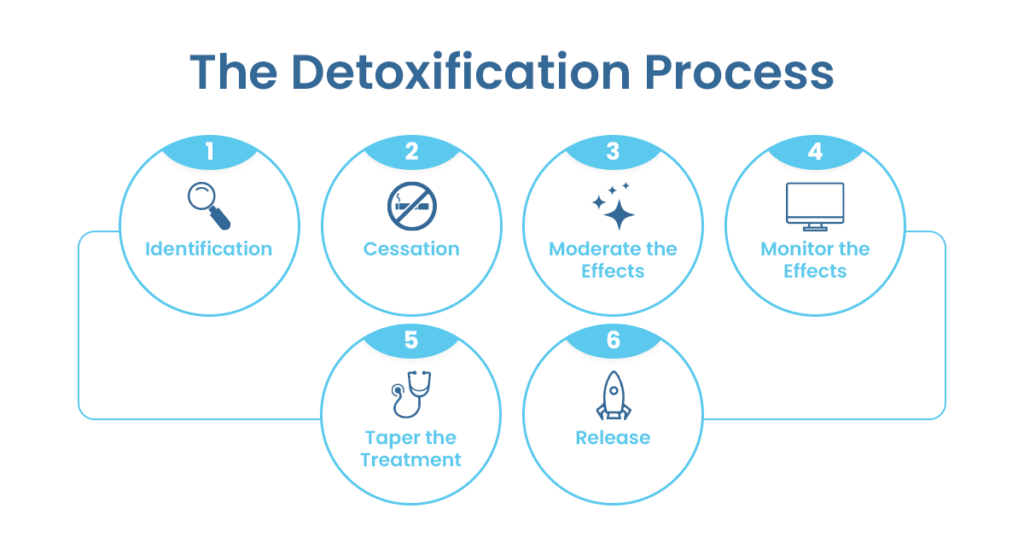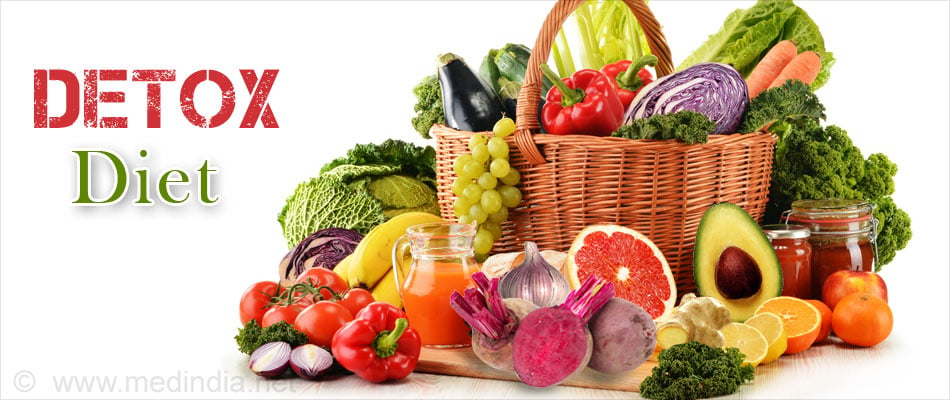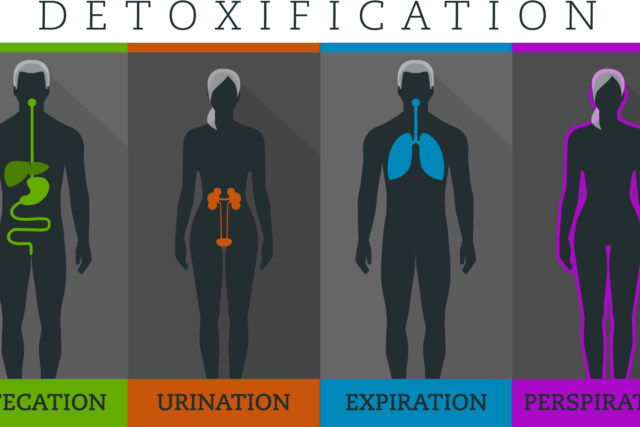In our modern world, the concept of detoxification has gained considerable attention and for a good reason. The principle behind detoxification is not just about achieving a healthier body but also about enhancing mental clarity and emotional stability. Let’s delve into the essence of detoxification and uncover the myriad ways it can transform our lives.
Table of Contents
Understanding Detoxification
At its core, detoxification is the process by which the body eliminates toxins. These toxins can come from various sources, including the environment, our diet, and the natural byproducts of metabolism. The science behind detox is fascinating, highlighting the body’s inherent mechanisms, such as the liver, kidneys, and even the skin, working tirelessly to cleanse our system.
The Science Behind Detox
Liver: The Body’s Primary Detoxifier
The liver is often considered the powerhouse of detoxification. It processes everything we ingest, breathe in, or absorb through the skin and uses a two-phase system to convert toxic substances into less harmful ones. During Phase 1, the liver uses enzymes (specifically, the cytochrome P450 family) to convert toxins into less harmful substances. Some substances are directly excreted after this phase. During Phase 2, the liver further breaks down these substances, making them water-soluble so they can be easily excreted through the kidneys or bile.
Kidneys: Filtering Blood
The kidneys constantly filter our blood, removing waste and excess substances through urine. They play a crucial role in detoxification by excreting water-soluble toxins and regulating the body’s water balance and blood pressure. The kidneys use a complex system of filtration and reabsorption to ensure that essential nutrients are retained while toxins are eliminated.
Digestive System: Eliminating Waste
The digestive system, particularly the colon, is essential for excreting waste products from the body. The gut flora within the digestive tract also plays a role in breaking down toxins. Fiber in the diet helps bind to waste and toxins, facilitating their excretion through stool. Ensuring a healthy digestive system is crucial for effective detoxification, highlighting the importance of a balanced diet rich in fiber.
Skin: Sweating Out Toxins
The skin, the body’s largest organ, aids in detoxification through sweat. Sweating not only helps regulate body temperature but also allows the body to eliminate toxins through the pores. Engaging in regular physical activity to induce sweating can support the body’s natural detoxification process.
Lungs: Breathing Out Toxins
The respiratory system, especially the lungs, plays a critical role in expelling carbon dioxide—a waste product of metabolism—from the body. Deep breathing exercises can enhance this natural detoxification process by helping the body rid itself of carbon dioxide more efficiently.
The Role of Antioxidants and Phytonutrients
Antioxidants and phytonutrients found in fruits, vegetables, and other plant-based foods support the body’s detoxification processes. These substances help neutralize free radicals, thereby preventing them from causing cellular damage. Some foods, such as cruciferous vegetables and garlic, have been shown to enhance the liver’s detoxification enzymes.

The Benefits of Detoxification
1. Improved Digestive Health
Detoxification can lead to better digestive health by removing waste and toxins that may clog the digestive tract. A diet rich in fibers, fruits, and vegetables supports the body’s natural detox processes, improving gut health and facilitating regular bowel movements. This not only helps in reducing bloating and discomfort but also enhances nutrient absorption, contributing to better overall health.
2. Enhanced Energy Levels
One of the most noticeable benefits of detoxification is a boost in energy levels. By eliminating toxins from the body and improving metabolic functions, individuals often experience a significant increase in vitality. A detox diet, which typically emphasizes whole foods and hydrating fluids, can help stabilize blood sugar levels, providing sustained energy throughout the day.
3. Stronger Immune System
Detoxification aids in strengthening the immune system by allowing it to focus on protecting the body against infections and diseases, rather than being overwhelmed by toxins. Foods that support detoxification often contain vitamins, minerals, and antioxidants that bolster the immune system’s function, enhancing the body’s ability to fight off illnesses.
4. Weight Loss and Management
Although detoxification is not a standalone weight loss solution, it can support weight management efforts. By improving the efficiency of the digestive system and metabolism, detoxification can help in shedding excess weight. Moreover, adopting a detox-friendly lifestyle encourages healthier eating habits and reduces cravings for processed foods, aiding in long-term weight management.
5. Improved Skin Health
Detoxification can have a visible impact on skin health. By eliminating toxins that can affect the skin, detoxification can lead to a clearer, more radiant complexion. Hydration, a key component of most detox plans, also plays a crucial role in maintaining skin health, helping to keep the skin moisturized and reducing the appearance of wrinkles and blemishes.
6. Enhanced Mental Clarity
Beyond the physical benefits, detoxification can also enhance mental clarity and cognitive function. By reducing the load of toxins, individuals often experience improvements in concentration, memory, and mood. The mental fog that many people experience due to poor diet and environmental toxins can lift, leading to clearer thinking and improved productivity.
7. Reduced Inflammation
Chronic inflammation can lead to various health issues, including heart disease, diabetes, and arthritis. Detoxification helps in reducing inflammation by eliminating dietary and environmental triggers of inflammation and by providing the body with anti-inflammatory nutrients found in whole, unprocessed foods.
8. Better Sleep Quality
Detoxification can improve sleep quality by removing toxins that may interfere with the body’s natural sleep rhythms. A detox plan that includes reducing caffeine and sugar intake, coupled with regular physical activity, can lead to deeper, more restful sleep. Improved sleep, in turn, supports the body’s detoxification processes, creating a positive cycle of health and well-being.

Methods of Detoxification
1. Diet and Nutrition
One of the simplest and most effective ways to support detoxification is through diet. Consuming a diet rich in fruits, vegetables, whole grains, and lean proteins can provide essential nutrients and antioxidants that aid the detox process.
- Fruits and Vegetables: High in fiber and water content, fruits and vegetables help to keep the digestive system moving, facilitating the excretion of toxins. They are also rich in vitamins, minerals, and antioxidants that support liver and kidney function.
- Detoxifying Foods: Certain foods are known for their detoxifying properties, including garlic, lemon, green tea, beets, and leafy greens such as spinach and kale. These foods can stimulate the liver’s detoxifying enzymes.
- Hydration: Drinking adequate amounts of water is crucial for detoxification. Water aids in the digestion process, helps the kidneys to filter out toxins, and keeps the body hydrated and functioning optimally.
2. Exercise and Physical Activity
Regular exercise is another effective way to support the body’s detoxification process. Physical activity encourages circulation and sweating, which helps to eliminate toxins through the skin.
- Cardiovascular Exercise: Activities such as walking, jogging, cycling, and swimming increase heart rate and circulation, promoting the elimination of toxins and strengthening the body’s organs.
- Yoga and Stretching: These practices not only improve flexibility and reduce stress but also support the lymphatic system, another key player in the body’s detoxification process.
3. Proper Sleep
Adequate sleep is essential for the body’s health and its ability to detoxify effectively. During sleep, the body’s cells regenerate, and the brain detoxifies by removing waste products that have accumulated throughout the day.
- Sleep Hygiene: Maintaining a regular sleep schedule, reducing exposure to screens before bedtime, and creating a restful sleeping environment can improve sleep quality and support detoxification.
4. Hydration
Hydration is critical for detoxification. Drinking sufficient water throughout the day helps to flush toxins from the body through urine, aids in digestion, and supports cellular health.
- Water Intake: Aim to drink at least 8 glasses of water a day, or more if you are physically active or live in a hot climate.
- Herbal Teas: Certain herbal teas, such as dandelion or green tea, can also support detoxification due to their diuretic properties and antioxidant content.
5. Reducing Toxin Exposure
Minimizing exposure to environmental toxins is an essential part of any detoxification strategy. This can include:
- Avoiding Processed Foods: These can contain additives and preservatives that may add to the body’s toxin load.
- Choosing Organic: Whenever possible, choosing organic foods can reduce exposure to pesticides and chemicals.
- Using Natural Cleaning and Personal Care Products: Many conventional products contain chemicals that can be absorbed through the skin or inhaled.
6. Sauna Therapy
Sauna therapy can promote detoxification through sweating. The heat from a sauna increases circulation and prompts the body to sweat out toxins. This method should be used with caution, especially for individuals with certain health conditions, and hydration is crucial to prevent dehydration.

DIY Detox Plans
A Simple One-Day Detox Plan
This plan is designed for a quick reset of your system, ideal for those who want a brief cleanse without a long-term commitment.
- Morning: Start your day with a glass of warm water with lemon to kickstart your digestion and liver function. Follow this with a light breakfast consisting of fresh fruit or a smoothie packed with greens, such as spinach or kale, and a small handful of nuts for healthy fats.
- Mid-Morning: Hydrate with herbal tea or water infused with cucumber and mint. Avoid caffeine.
- Lunch: Opt for a salad with mixed greens, a variety of vegetables, and a lean protein source such as grilled chicken or tofu. Dress it with olive oil and lemon juice.
- Afternoon Snack: Enjoy a piece of fruit or a small serving of raw vegetables with hummus.
- Dinner: Prepare a simple meal of steamed vegetables and quinoa or brown rice. Include ingredients like broccoli, carrots, and beets, which are known for their detoxifying properties.
- Throughout the Day: Drink at least 8 glasses of water. Herbal teas are also a great option to stay hydrated and support detoxification.
- Evening: Conclude your day with a relaxing activity such as a gentle yoga session or meditation to reduce stress, which can contribute to toxin accumulation in the body.
A Week-Long Detox Plan
For those looking for a deeper cleanse, this week-long plan incorporates dietary changes, physical activity, and lifestyle practices to support a more thorough detoxification.
- Daily Diet:
- Breakfast: Start with a smoothie or oatmeal topped with fresh fruits and seeds (flaxseeds, chia seeds).
- Lunch: Have a large salad with various vegetables, legumes, and a healthy fat source like avocado. Incorporate whole grains such as quinoa or brown rice.
- Snacks: Choose whole fruits, nuts, or vegetable sticks with hummus.
- Dinner: Opt for light meals consisting of steamed vegetables and lean protein sources. Include detoxifying herbs and spices such as turmeric and ginger in your cooking.
- Hydration: Aim for 8-10 glasses of water daily, including herbal teas like green tea, dandelion tea, or ginger tea.
- Physical Activity: Engage in at least 30 minutes of moderate exercise daily, such as walking, cycling, or yoga, to stimulate circulation and promote sweating.
- Sleep: Ensure 7-9 hours of quality sleep each night to facilitate the body’s natural detoxification processes during rest.
- Digital Detox: Reduce screen time, especially an hour before bedtime, to decrease mental stress and promote better sleep quality.
- Mindfulness and Relaxation: Incorporate daily practices of meditation, deep breathing exercises, or journaling to reduce stress and support mental detoxification.
Precautions
While DIY detox plans can offer health benefits, it’s important to listen to your body and adjust accordingly. Those with medical conditions or nutritional needs should consult with a healthcare professional before starting any detox plan. Remember, the goal of a detox is to nourish and support the body, not to deprive it, so focus on nutrient-rich foods, hydration, and healthy lifestyle practices.

Detoxification Myths and Facts
Myth 1: Detox Diets Can Completely Purify the Body
- Fact: The human body is equipped with a complex system involving the liver, kidneys, digestive system, skin, and lungs, all of which work together to eliminate toxins. While certain diets can support these natural detoxification processes, no diet can completely purify the body of all toxins. A balanced, nutritious diet can, however, enhance the body’s natural detox mechanisms.
Myth 2: Frequent Detoxes Are Necessary for Health
- Fact: The body continuously processes and eliminates toxins. There’s no scientific evidence to suggest that frequent detox diets or products are necessary for health. In fact, overly frequent detoxes can disrupt the body’s balance and do more harm than good. Supporting the body’s natural detoxification system through healthy lifestyle choices is generally sufficient for most people.
Myth 3: Expensive Detox Products Are Essential for Detoxification
- Fact: The market is flooded with detox teas, supplements, and other products claiming to offer miraculous detox benefits. However, many of these claims are not backed by scientific evidence. The essentials for supporting your body’s detox pathways include a diet rich in fruits, vegetables, adequate hydration, regular physical activity, and sufficient sleep. These natural methods are often more effective and far less expensive than commercial detox products.
Myth 4: Detox Diets Can Lead to Long-term Weight Loss
- Fact: While some people may experience short-term weight loss from a detox diet, mainly due to fluid loss and reduced calorie intake, these diets are not a sustainable or healthy method for long-term weight management. Effective weight loss involves a balanced diet and regular exercise. It’s important to approach weight loss in a way that supports overall health rather than resorting to extreme detox diets.
Myth 5: Detox Diets Improve Energy and Vitality
- Fact: People often report feeling more energetic and alert after following a detox diet. However, this may not necessarily be due to the detoxification process itself. Improvements in energy and vitality are often the result of eliminating processed foods, sugar, and caffeine from the diet and increasing the intake of water, fruits, and vegetables. These dietary changes can naturally lead to improved energy levels without the need for a specific detox diet.
Myth 6: Detoxification Is Quick and Easy
- Fact: True detoxification is a continuous, natural process that the body performs daily, not something that can be achieved overnight or through quick fixes. Supporting your body’s detoxification system is a long-term commitment that involves making healthy lifestyle choices consistently, rather than relying on short-term diets or cleanses.
Conclusion
The journey towards a clearer body and mind through detoxification is both transformative and enlightening. By embracing detoxification, we open the door to improved health, heightened mental clarity, and an overall sense of well-being.
FAQs
- What exactly are toxins, and where do they come from? Toxins are harmful substances that can come from food, the environment, or the body’s metabolic processes.
- Can detoxification aid in weight loss? While detoxification is not a weight loss solution, it can support weight loss efforts by improving metabolism and digestion.
- How often should I detox? The frequency of detoxification varies depending on individual needs and lifestyle factors. Consulting with a healthcare professional is advisable.
- Are there any side effects to detoxification? Some may experience mild symptoms such as headaches or fatigue as the body adjusts, but these are typically temporary.
- Can detoxification improve skin health? Yes, detoxification can lead to clearer, more radiant skin by eliminating toxins that can affect skin health.



MOST COMMENTED
Animal-Based Proteins / Casein Protein / Dietary Protein / High-Protein Diets / Pea Protein / Plant-Based Proteins / Protein / Protein Deficiency / Protein Supplements / Proteins / Whey Protein / Whey Proteins
Is Protein Powder Safe for Teenagers and Children?
Animal-Based Proteins / Casein Protein / Dietary Protein / High-Protein Diets / Pea Protein / Plant-Based Proteins / Protein / Protein Deficiency / Protein Supplements / Proteins / Whey Protein / Whey Proteins
Unlock the Power of Proteins for Optimal Gut Health
Multivitamin
Total Health: Multivitamin for Active Lifestyles
Multivitamin
WellnessFusion: Complete Multivitamin Support
Dietary Supplement
Revitalize Your Health: The Magic of Red Yeast Rice Capsules
Foot care / Foot Health
Revitalize Your Foot Care Routine: Essential Tips for Optimal Foot Health
Foot Problem / Diabetics / Foot Health
Diabetics: Mastering Footwear Selection for Enhanced Foot Health and Ultimate Comfort
Exercises and Footwear Tips for Hammertoe Relief / Foot care / Foot Health / Foot Pain / Foot Problem / Hammertoes
Unlock Effective Exercises and Footwear Tips for Hammertoe Relief
Hammertoes / Foot Health / Foot Pain / Foot Problem
Unlock Relief: Essential Guide to Hammertoes Causes, Symptoms, and Treatments
Foot Problem / Foot Health
Revolutionize Your Recovery: Natural Remedies for Plantar Fasciitis – Fresh Home Keepers